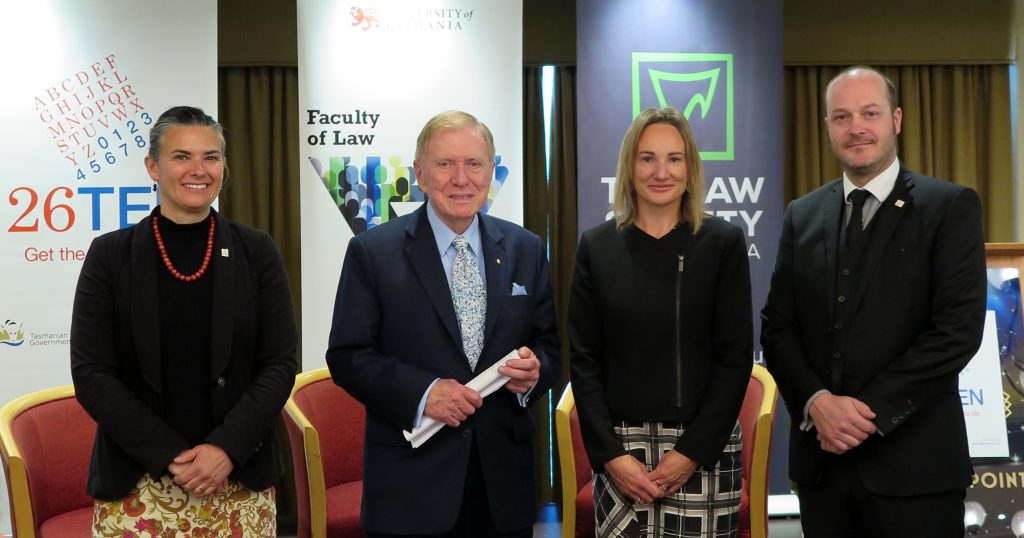Plain English and the law's story
We know that complex and bureaucratic language is a barrier to taking part in society, especially for people with low literacy. That’s why 26Ten is working with the Faculty of Law at the University of Tasmania and the Law Society of Tasmania to build momentum for plain English in the legal sector.
We encourage professionals working in the law to speak and write so that your clients are supported and have every chance of understanding what you are advising them. Evidence shows that using plain English boosts social justice because it makes it easier for people to comply, understand their responsibilities and make better decisions. It increases the chances that everyone will understand your message, including adults who have difficulty reading.
Discussion – Write for the people: Plain English and the law, recorded 5 May 2017, Hobart
Michael Kirby AC, CMG, Australian jurist and academic and former Justice of the High Court of Australia (30:15), Hamish Locke, State and Practice Manager of the Tasmanian Aboriginal Community Legal Centre (5:56), and Rowena Holder, the President of the Guardianship and Administration Board in Tasmania (16:56) discuss plain English. Rohan Foon, President, Law Society of Tasmania introduces the discussion and Anita Planchon, Manager Literacy Services and 26Ten, Libraries Tasmania is the MC. This video is presented by 26Ten, the Faculty of Law at the University of Tasmania and the Law Society of Tasmania.
More success stories:

Blue Hills Honey - a 26Ten Workplace Grant project
The 26Ten Workplace Grant project with Blue Hills Honey improved health and safety and quality compliance on the work site. The engagement of employees in the development and implementation of standard operating procedures also promoted a sense of ownership over the procedures, promoting acceptance and participation.

John's story
"My grandson showed interest in hearing about my life story. This inspired me to learn to read and write. So I went to the library and was matched with a volunteer tutor who helped me start learning."


